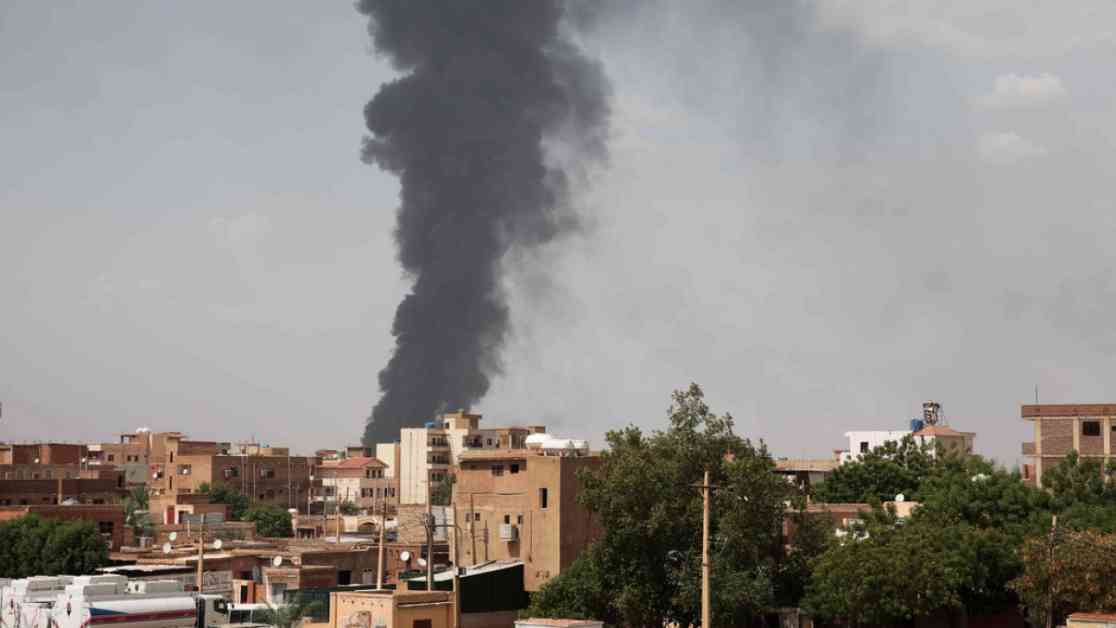Sudan’s capital, Khartoum, is currently embroiled in a major offensive led by the country’s army against the paramilitary Rapid Support Forces (RSF). The army has launched air raids targeting RSF positions in both Khartoum and the northern region of the city, marking a significant escalation in the ongoing conflict between the two factions.
The offensive, which began with airstrikes on Thursday, has seen the army making strategic advances in the city. Al Jazeera’s Hiba Morgan reported that the army has successfully seized control of three main bridges, including two critical connections between Omdurman and Khartoum. Additionally, there have been reports of heavy fighting near the presidential palace as the army pushes further into RSF-held territory.
Despite some gains earlier this year in Omdurman, the army has predominantly relied on artillery and air raids, struggling to dislodge the more entrenched RSF ground forces within Khartoum. The assault on the capital has been in the planning stages for months, according to military sources, indicating a well-coordinated effort by the army to regain control of key areas.
The conflict in Sudan dates back to April 2023 when tensions between army chief Abdel Fattah al-Burhan and RSF leader Mohamed Hamdan “Hemedti” Dagalo erupted into violence. This ongoing power struggle has resulted in the displacement of over 10 million people, with 8.1 million displaced within Sudan and an additional two million forced to flee the country, as reported by the United Nations.
The recent offensive has not been without casualties, with at least four people killed and 14 wounded in RSF artillery shelling targeting residential neighborhoods in the Karari Governorate, located north of Omdurman. The injured were promptly transported to al-No Hospital for medical attention, underscoring the human toll of the conflict on civilians caught in the crossfire.
As the army continues its push into Khartoum, residents have reported the sound of heavy artillery echoing throughout the city, signaling ongoing clashes between the army and RSF forces. One resident described the tense atmosphere, with neighbors gathered in anticipation of further developments, expressing hope for the army to succeed in retaking the city from the militia.
Amidst the escalating violence, the international community has expressed concerns about the humanitarian crisis unfolding in Sudan. UN Secretary-General Antonio Guterres recently met with al-Burhan to discuss the conflict’s impact on civilians and the potential for regional instability. Guterres emphasized the urgent need to address the conflict and its devastating consequences on the Sudanese population.
The conflict in Sudan has not only led to loss of life and displacement but has also raised fears of widespread famine. A UN-backed assessment has highlighted the risk of famine on an unprecedented scale, underscoring the urgent need for humanitarian intervention to prevent further suffering among the vulnerable population.
In his address to the UN General Assembly, al-Burhan reiterated his support for efforts to end the war in Sudan, emphasizing the need to reclaim territory occupied by the RSF. He also called out certain regional states for allegedly providing support to the RSF, highlighting the external factors contributing to the conflict’s protraction.
As the army’s offensive in Khartoum intensifies, the RSF has reportedly withdrawn forces from Omdurman to reinforce troops in the capital, potentially shifting the balance of power in favor of the militia. The ongoing conflict has strained diplomatic efforts to broker peace, with talks faltering and the situation on the ground growing increasingly volatile.
The conflict in Sudan remains a complex and multifaceted crisis, with deep-rooted political tensions fueling violence and displacement. As the army presses forward with its offensive in Khartoum, the fate of the city and its residents hangs in the balance, highlighting the urgent need for a peaceful resolution to the conflict.
